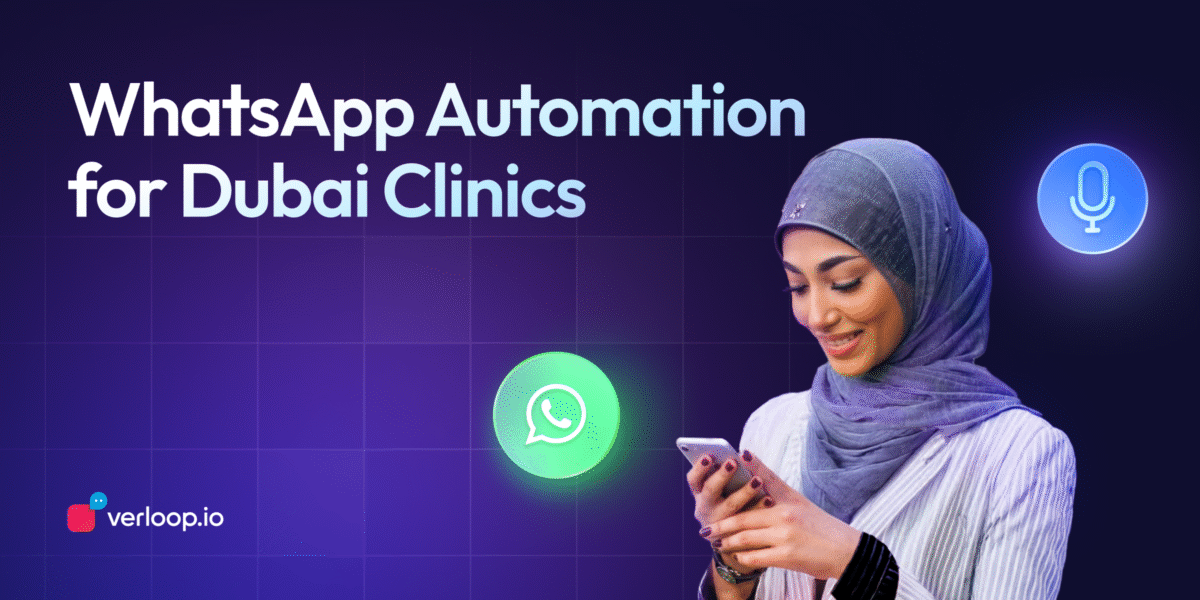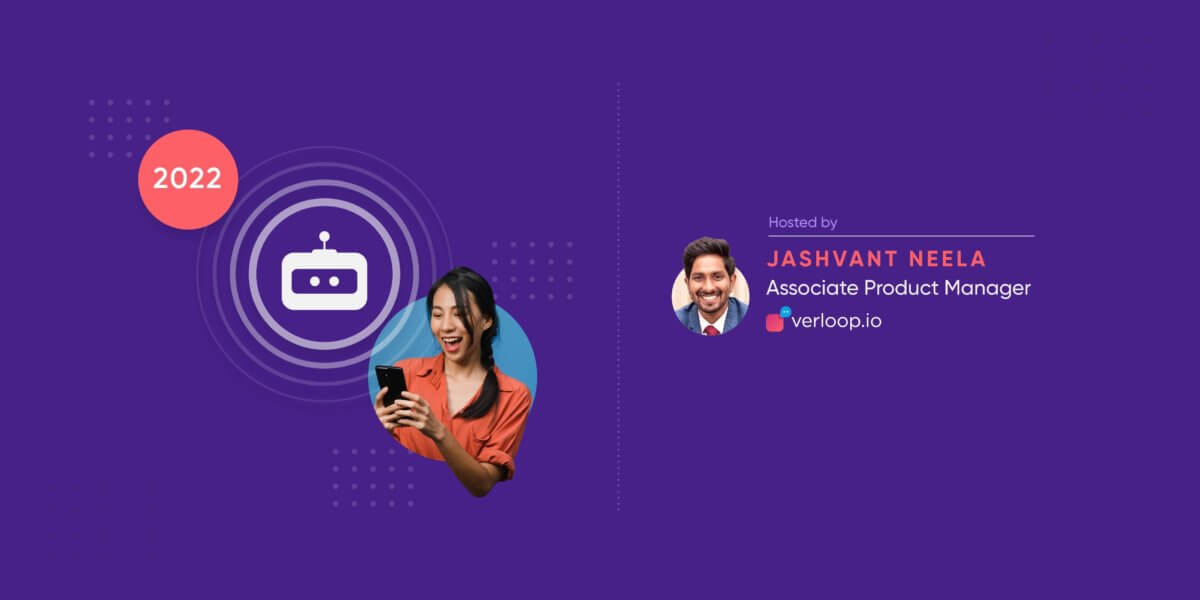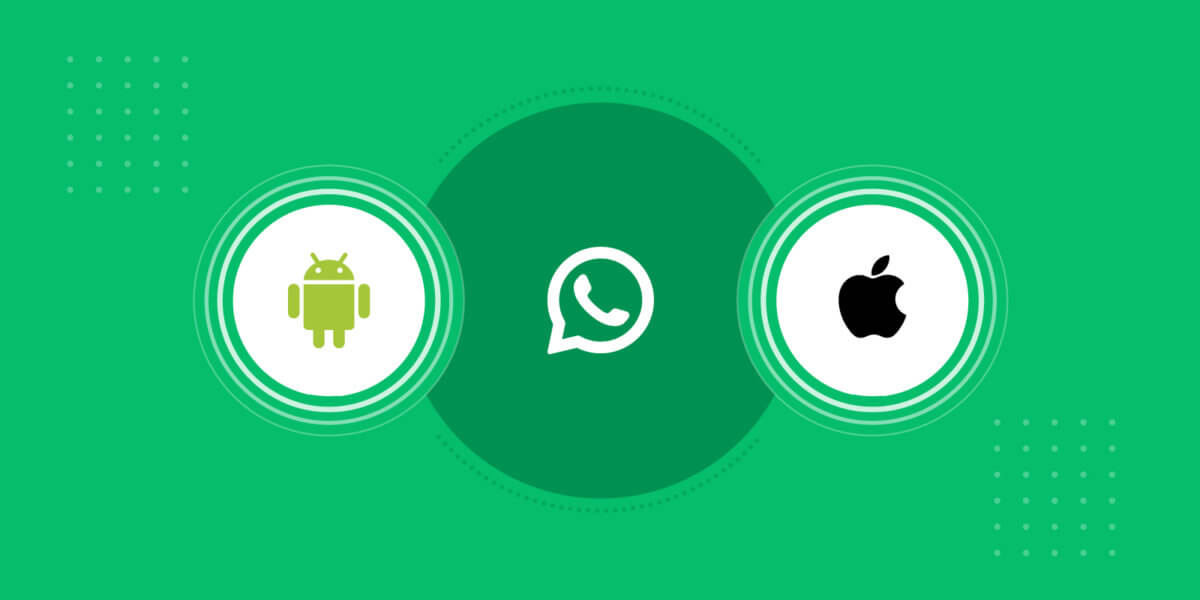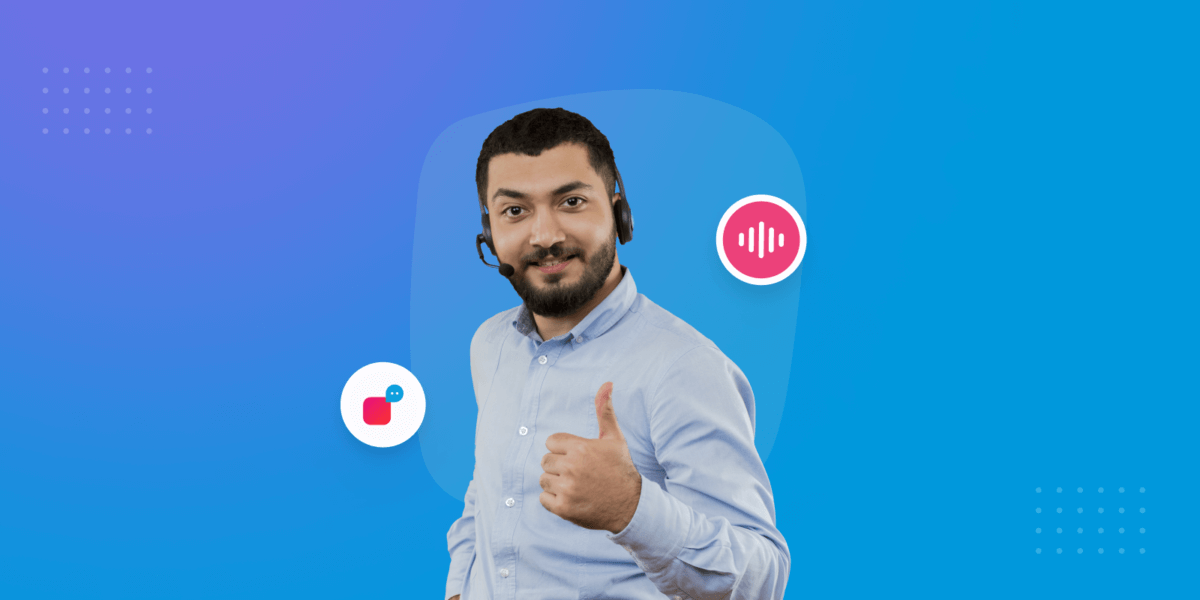How WhatsApp Can Automate Patient Engagement for your Dubai Clinic
- July 23rd, 2025 / 5 Mins read
-
 Aarti Nair
Aarti Nair

How WhatsApp Can Automate Patient Engagement for your Dubai Clinic
- July 23rd, 2025 / 5 Mins read
-
 Aarti Nair
Aarti Nair
WhatsApp Automation for Dubai Clinics
Dubai’s clinics are under pressure to reduce wait times, improve follow-ups, and ensure timely communication with patients. With 5.66 million active WhatsApp users in the UAE, and 1.7 million of whom use it as their primary platform, ignoring it as a communication channel means missing a direct line to your patients.
WhatsApp automation is helping healthcare providers simplify routine processes like appointment reminders, test result notifications, prescription refills, and patient feedback collection. The result?
Better patient engagement, lower no-show rates, and improved staff productivity.
This blog looks at how clinics in Dubai are using healthcare process automation with WhatsApp to solve common challenges—without investing in complex IT systems or overhauling existing workflows.
The Rise of WhatsApp Automation in Dubai Healthcare
More clinics in Dubai are turning to WhatsApp automation—not as a tech trend, but as a practical solution to meet growing patient expectations and operational strain.
Why?
Because, as we have seen, the numbers speak for themselves. With over 5.66 million active users in the UAE, WhatsApp is already where patients are. Clinics don’t have to introduce a new app or channel—they just need to meet patients where they’re already communicating.
The push towards healthcare process automation is being driven by a few clear realities:
Everyone has a smartphone—and they expect instant replies.
Clinic staff are stretched, juggling walk-ins, calls, and queues.
Patients want appointment confirmations, prescription refills, and follow-ups—without long hold times or missed calls.
By automating these interactions with WhatsApp, clinics can:
Instantly respond to FAQs and appointment requests.
Reduce administrative workload for staff.
Improve operational efficiency, without needing extra headcount.
All of this is enabled through tools like the WhatsApp Business API, which allow for seamless integration with clinic systems. And importantly, WhatsApp’s end-to-end encryption ensures that patient data stays private—meeting both trust and compliance requirements.
This shift isn’t about adopting something new for the sake of it. It’s about using what’s already familiar, secure, and scalable to make healthcare more accessible and manageable, for both patients and providers.
Key Benefits of WhatsApp Automation for Clinics
Patients don’t like waiting. Staff don’t like juggling repetitive admin tasks. And clinics certainly don’t like no-shows. That’s where WhatsApp automation steps in—with benefits that go beyond just faster replies.
At its core, WhatsApp automation helps clinics communicate more effectively. Patients get answers to common queries—like appointment slots, location details, or prescription follow-ups—instantly. This doesn’t just make them feel heard; it boosts their confidence in the clinic’s responsiveness.
On the backend, automation takes over the repetitive, time-consuming tasks. Need to confirm an appointment? Send a reminder? Follow up after a visit? All of it can be handled automatically, giving staff more room to focus on patient care instead of paperwork.
Here’s what that looks like in practice:
Better patient engagement: Real-time updates build stronger patient relationships.
Lower administrative load: Automated scheduling, reminders, and FAQs reduce manual effort.
Fewer missed appointments: Reminder messages help minimise no-shows without extra calls.
Improved operational efficiency: Staff spend less time on logistics, more time on care.
Cost-effective communications: One WhatsApp channel handles thousands of patient touchpoints.
Data security: WhatsApp’s end-to-end encryption keeps patient information confidential and compliant.
When communication becomes proactive and reliable, patients stay informed, feel cared for, and are more likely to return. It’s not just about automation—it’s about building trust at scale, without scaling up your team.

How WhatsApp Business API Powers Clinic Automation

Let’s say a dental clinic in Dubai receives dozens of appointment requests daily, most of them coming in outside working hours. The receptionist, already juggling front desk queries and patient check-ins, can’t possibly keep up. By the time morning rolls around, they’re buried in a backlog of unanswered messages—and a few missed patients.
Now imagine the same clinic using the WhatsApp Business API.
Every time a patient books an appointment online, the API kicks in—sending a confirmation message instantly. A day before the visit, it sends a gentle reminder. If the patient doesn’t respond, a follow-up message goes out asking to reschedule. After the appointment, a quick feedback form is delivered automatically.
No manual follow-ups. No overwhelmed front desk. No missed appointments.
This is the kind of operational ease clinics unlock with WhatsApp Business API.
It works quietly in the background, integrating with your clinic’s CRM or patient management system, pulling in the right data, and triggering the right messages at the right time. Whether it’s appointment scheduling, test result notifications, or pre-visit instructions—the API streamlines it all.
Let’s break down what makes it so effective:
Integration-ready: Works smoothly with your existing booking and EMR systems.
Smart automation: Handles repetitive tasks—like reminders and FAQs—without human intervention.
Secure messaging: End-to-end encryption ensures patient privacy and data protection.
Real-time responses: No more making patients wait for the clinic to open.
For clinics handling high volumes of patients or operating with lean staff, this isn’t just a convenience—it’s a necessity. It not only improves communication accuracy but also reduces the margin for human error, something particularly critical in healthcare settings.
Because when a message matters, like one that confirms a child’s vaccination appointment or follows up on a lab report, you want it to land reliably and securely.
Use Cases of WhatsApp Automation in Dubai Clinics
Imagine this, a clinic’s front desk is juggling walk-ins, ringing phones, and an inbox full of appointment requests. In the middle of this chaos, a patient just wants to reschedule their appointment. But instead of waiting on hold, they send a quick message on WhatsApp and get an instant response. That’s the difference automation brings.
Let’s walk through a few everyday scenarios where WhatsApp automation steps in to save time, reduce workload, and improve patient experience:
1. Appointment Booking and Rescheduling
Patients can now book an appointment with a simple “Hi” on WhatsApp. A chatbot guides them through doctor availability, services, time slots, and sends instant confirmation. Need to reschedule?
A few taps, and it’s done, with no calls, no waiting.
For instance, a new patient is looking to book a consultation with a general physician. Instead of navigating a clunky website or calling during limited clinic hours, they simply message the clinic on WhatsApp. The chatbot responds instantly, shows available slots, and confirms the booking—all within a minute. If plans change, the same flow lets them reschedule without speaking to a human.
2. Lab Report Notifications
Gone are the days when patients had to call repeatedly or revisit the clinic just to know if their lab results are ready. WhatsApp bots notify patients as soon as their reports are uploaded.
After a blood test, a patient usually has to wait for a call or email to know their results are ready. Now, imagine getting a WhatsApp message as soon as the report is uploaded. The patient clicks the link, views their report, and even books a follow-up—all without a single phone call.
3. Prescription & Follow-up Reminders
A simple nudge on WhatsApp—“Don’t forget to take your medication at 8 PM”—can go a long way. Clinics can set up timely reminders and even automate follow-up visit booking.
Post-surgery, when a patient is prescribed a week-long course of medication and a follow-up consultation. The clinic can set up automated WhatsApp reminders—“Take your antibiotic at 8:00 AM” and “Your follow-up is due in 2 days, would you like to book it now?” These nudges help the patient stick to their recovery plan, reducing complications and improving outcomes.
4. Pre-Visit Instructions and Digital Check-ins
Before the appointment, patients receive a message with location, documents required, and what to expect. They can even complete intake forms or confirm attendance—all from WhatsApp.
For instance, a mother books a vaccination appointment for her child. A day before the visit, the clinic sends a WhatsApp message: “Please bring your child’s health record and arrive 15 minutes early.” On the day of the appointment, she receives a check-in link to confirm arrival from her phone—saving time at the reception desk.
5. Patient Feedback Collection
Instead of manually calling patients, WhatsApp sends an automated message post-visit: “How was your experience today? Rate us!” It’s fast, convenient, and gives clinics actionable insights.
For instance, when a patient visits the clinic for a dental cleaning. Later that evening, they received a friendly WhatsApp message: “We hope your visit went well! Please rate your experience to help us improve.” With just one tap, they leave feedback—something they might not have done through email or a paper form.
6. Health Campaigns and Offers
Whether it’s a free flu shot drive or discounted diabetes check-ups, clinics can broadcast targeted health campaigns via WhatsApp—with CTAs to book instantly.
During the summer, when the UAE clinic wants to raise awareness about heatstroke prevention. They can send an automated WhatsApp broadcast: “Staying hydrated is crucial. Book your hydration check-up today and get a free consultation.” A call-to-action button lets recipients schedule appointments right from the chat.
Secure Patient Engagement: Protecting Data and Privacy

In healthcare, trust is everything. Patients aren’t just handing over symptoms—they’re sharing personal histories, diagnoses, and sensitive details. Which makes one thing absolutely non-negotiable: privacy.
And when that communication happens over digital channels like WhatsApp, the question arises—is it safe?
Fortunately, WhatsApp doesn’t just offer convenience—it’s built for confidentiality. Every message sent through the WhatsApp Business API is protected by end-to-end encryption, meaning no one—not even WhatsApp—can read the contents of those messages except the sender and the receiver.
But security goes beyond encryption.
Clinics also need to ensure that every digital interaction aligns with local and international data privacy regulations—whether that’s HIPAA, PDPA, or GDPR. WhatsApp’s infrastructure is built to support compliance, offering peace of mind not just to healthcare providers, but to the patients placing their trust in them.
This level of secure engagement enables clinics to:
Share test results or prescriptions directly with patients via chat, without worrying about data leaks.
Send appointment reminders, follow-ups, or health advice while remaining compliant with privacy laws.
Reduce reliance on insecure channels like email or paper-based communication.
Patients are more likely to engage when they know their data is safe. And clinics that invest in secure messaging practices aren’t just protecting themselves legally—they’re showing patients they care.
In a world where healthcare is becoming increasingly digital, data security isn’t a checkbox—it’s a foundation. And platforms like WhatsApp help clinics build that foundation without compromising on speed, convenience, or patient satisfaction.
Enhancing Patient Engagement with AI Agent Chat
What happens when a patient messages your clinic after hours with a basic query? Or when ten people are trying to confirm their appointments at once? For many clinics, this leads to delays, missed messages, and overwhelmed staff.
That’s where AI Agent chat steps in—not just as a tool, but as a reliable digital team member.
Unlike traditional bots that follow rigid scripts, today’s AI Agents are powered by natural language understanding. They can understand patient intent, respond empathetically, and even personalise conversations based on previous interactions. Whether it’s “What are your timings today?” or “Can I get a follow-up on my prescription?”, the AI Agent is ready to help—instantly.
Think of it as your clinic’s front desk, available 24/7.
It handles the repetitive, time-consuming questions—“How do I book an appointment?”, “What documents do I need?”—freeing up your human staff for more critical tasks that require empathy and nuance.
And here’s the best part: AI doesn’t get tired. It can manage hundreds of conversations simultaneously without dropping the ball, making it perfect for clinics dealing with high patient volumes.
With every quick, accurate, and helpful reply, your clinic is not just providing answers—it’s building trust. Patients feel heard. They feel valued. And they’re more likely to come back.
In today’s healthcare landscape, where every interaction counts, AI Agent chat helps clinics stay responsive, reliable, and relevant—without burning out the team behind the scenes.

Verloop.io AI Agent: A Smart Solution for Dubai Clinics
For clinics in Dubai looking to scale patient engagement without scaling costs, the Verloop.io AI Agent presents a clear path forward.
Built with healthcare automation in mind, the AI Agent is designed to take over repetitive patient conversations—think appointment scheduling, prescription queries, and follow-up reminders—while ensuring every interaction feels personal and relevant.
What makes it especially powerful for Dubai’s clinics? Two things: deep customisation and WhatsApp-native integration.
Verloop.io is an official WhatsApp Business Solution Provider (BSP). This means clinics using Verloop can leverage the full potential of the WhatsApp Business API, directly within the AI agent’s capabilities. From multilingual communication to secure, end-to-end encrypted patient messaging, it brings both reach and compliance to your fingertips.
But that’s not all. The AI Agent integrates effortlessly with your existing clinic management systems, so there’s no disruption—only smoother workflows. Need it to respond differently for dental appointments vs. dermatology queries? Done. Prefer Arabic or English responses based on patient preferences? No problem.
Here’s what you get with Verloop.io’s AI Agent:
End-to-end automation of routine patient interactions
Seamless integration with clinic and EHR systems
Custom workflows tailored to department or specialty
Multilingual support for Dubai’s diverse population
Ultimately, Verloop.io enables clinics to offer faster, more efficient care without increasing headcount. And with healthcare providers across the UAE now prioritising digital-first communication, this isn’t just a smart solution—it’s a competitive advantage.
Multilingual Support: Serving Dubai’s Diverse Population
Walk into any clinic in Dubai, and you’ll likely meet patients from five different countries in the same waiting room.
That’s the reality of healthcare in the UAE—where over 200 nationalities live and work, and where communication isn’t just about language, it’s about context, nuance, and empathy. From Emirati locals to South Asian expatriates, from Arab-speaking patients with regional dialects to European tourists, clinics must bridge these linguistic gaps to deliver care that truly connects.
This is where WhatsApp automation with multilingual AI support plays a pivotal role.
By enabling clinics to communicate in the preferred languages of their patients—be it English, Hindi, Malayalam, Tagalog, or one of the multiple Arabic dialects spoken across the GCC—automation ensures that vital health information is both accessible and understood.
Why does this matter? Because healthcare instructions can’t afford to be lost in translation.
Features like real-time language switching, automated templates in native languages, and localised response handling reduce misunderstandings, improve treatment adherence, and boost overall satisfaction.
Multilingual support helps clinics:
Remove communication barriers in appointment booking and follow-ups
Clarify complex medical instructions in a language patients are comfortable with
Foster stronger relationships through culturally aware conversations
In a city as multilingual as Dubai, this isn’t a nice-to-have. It’s a must.
And with AI-powered tools like Verloop.io’s WhatsApp Agent, multilingual automation doesn’t require separate systems or manual translation—it’s built into the conversation flow.
When clinics speak the language of their patients—literally—they don’t just treat illnesses. They build trust, loyalty, and long-term relationships.
Steps to Implement WhatsApp Automation in Your Clinic
Adopting WhatsApp automation isn’t just about installing a new tool—it’s about reshaping how your clinic communicates with patients at every stage. Whether you run a small practice or a large multi-speciality centre, getting started can be simple if you follow a structured approach.
Here’s how clinics in Dubai can successfully implement WhatsApp automation:
1. Define Your Communication Goals
What do you want to achieve? Is it reducing appointment no-shows, improving patient response times, or streamlining post-visit follow-ups? Start by identifying your clinic’s bottlenecks. For example, if reception staff spend hours confirming bookings, automation can take over with instant confirmations and reminders.
2. Choose the Right WhatsApp BSP Partner
WhatsApp automation requires access to the WhatsApp Business API, which you can’t get directly—you need to work with a Business Solution Provider (BSP). Choose one that understands healthcare workflows, like Verloop.io, which offers healthcare-focused templates, multilingual capabilities, and secure data handling.
3. Integrate with Your Existing Systems
The magic of automation lies in seamless integration. Make sure your WhatsApp tool can connect with your clinic management system (CMS), EMR/EHR software, or booking tools. This way, appointment data, patient history, and responses flow through without manual input.
4. Design Patient-Centric Chat Flows
Now it’s time to build. Think through your patients’ journey—from first contact to post-treatment check-ins—and map out the messages they might need. Use rich message formats like buttons, carousels, and forms to guide them. Keep the tone friendly, empathetic, and clear—especially for medical info.
Example flows might include:
🕐 Appointment booking and reminders
💊 Prescription refill requests
🧾 Payment confirmations
🩺 Pre-surgery instructions or post-consultation care tips
5. Test, Launch, and Monitor
Before going live, run internal tests to check for errors, mismatches, or unclear instructions. Once launched, monitor key metrics: open rates, response times, and completion rates for actions like booking or form submissions.
Regularly update the flows based on patient feedback and changing clinic needs. Automation is not a “set-it-and-forget-it” setup—it evolves with your patients.
Choosing the Right WhatsApp BSP and AI Solution
Not all WhatsApp automation tools are built the same—and for healthcare clinics, making the right choice can directly impact both patient satisfaction and operational efficiency.
The first step is selecting a WhatsApp Business Solution Provider (BSP). Since WhatsApp Business API access is only available through official BSPs, this partner plays a critical role in how well your automation efforts perform. Look for a BSP that not only offers API access, but also understands the compliance, security, and scalability needs of the healthcare industry.
Beyond that, pairing your WhatsApp automation with a smart AI solution can elevate your clinic’s experience from basic automation to intelligent patient engagement. This is where AI agents come in—handling conversations, answering FAQs, and triaging patient concerns in real-time without overburdening staff.
So, how do you evaluate the right fit?
Here are a few must-have capabilities:
Healthcare-Ready Workflows
Does the solution offer templates tailored for healthcare? Think appointment scheduling, medical FAQs, prescription refill requests, follow-ups, and test result notifications.
Data Privacy and Compliance
Healthcare data is sensitive. Choose a solution that complies with UAE’s health data protection laws and ensures end-to-end encryption, audit trails, and secure data handling.
Multilingual AI Agent Support
Dubai’s patient population speaks multiple languages and dialects. Your solution should support Arabic (including Gulf dialects) and English at the very least—preferably with natural language understanding capabilities for smoother conversations.
Seamless Integration
Can the AI agent connect easily with your clinic management system or EHR? Seamless sync ensures patient details, bookings, and communication logs are always in one place.
Human + AI Hybrid Model
While automation handles volume and speed, the solution should allow easy handoffs to human staff when a conversation needs personal care or escalation. This ensures patients always feel heard.
A platform like Verloop.io—which is both a WhatsApp BSP and an AI-powered conversational platform—ticks all these boxes. It brings together automation, AI chat and voice agents, and industry-specific workflows under one roof, making it ideal for clinics looking to improve both engagement and efficiency.
The Future of Patient Engagement Is Automated
WhatsApp automation is reshaping how clinics in Dubai connect with their patients—making care more accessible, responsive, and tailored. In a region where multilingual support, digital convenience, and trust in communication are paramount, automation offers a clear edge.
By simplifying appointment scheduling, enabling real-time support, and freeing up frontline staff, clinics can focus on what truly matters: delivering quality care. And with tools like the Verloop.io AI Agent—a WhatsApp BSP that brings smart automation to life—clinics can meet rising patient expectations while staying compliant and cost-efficient.
In a rapidly digitising healthcare landscape, those who embrace automation today won’t just keep up—they’ll lead. Now’s the time to turn patient engagement into a strategic advantage.
FAQs
1. What is WhatsApp automation in healthcare?
WhatsApp automation in healthcare refers to the use of automated workflows—powered by tools like WhatsApp Business API and AI chat agents—to streamline patient communication, appointment booking, reminders, and follow-ups. It helps clinics manage patient interactions more efficiently and at scale.
2. Why is WhatsApp automation effective for clinics in Dubai?
With 5.66 million active users, WhatsApp is the most-used social platform in the UAE. Its familiarity, multilingual capabilities, and real-time communication make it ideal for Dubai’s diverse and mobile-first population. Automation via WhatsApp enables clinics to reduce admin load and respond faster to patient needs.
3. How does WhatsApp automation improve patient engagement?
Automated messages, reminders, and follow-ups keep patients informed and reduce no-shows. AI chat agents ensure 24/7 availability and quick responses, which enhances patient satisfaction and builds long-term loyalty.
4. Is patient data secure when using WhatsApp for healthcare communication?
Yes. WhatsApp offers end-to-end encryption and secure data exchange through its Business API. When used via a compliant BSP like Verloop.io, it also helps clinics align with healthcare data privacy regulations.
5. What are common use cases of WhatsApp automation in clinics?
Some common use cases include:
Appointment scheduling and reminders
Lab result notifications
Post-consultation follow-ups
Handling FAQs (like timings, insurance, location)
Broadcasting health tips and vaccine alerts
6. Can WhatsApp automation support Arabic and other languages?
Absolutely. WhatsApp supports multiple languages, and AI chat agents like Verloop.io’s can handle varied Arabic dialects and other regional languages, ensuring inclusive communication for Dubai’s multicultural patient base.
7. What is the WhatsApp Business API, and how is it different from the WhatsApp app?
The WhatsApp Business API is designed for medium to large businesses to automate and scale communication. Unlike the basic app, it allows integration with clinic management systems and enables bulk messaging, auto-replies, and role-based access control for teams.
8. How do I get started with WhatsApp automation for my clinic?
Start by identifying a WhatsApp Business Solution Provider (BSP) like Verloop.io. They’ll help with setup, onboarding, chatbot building, and integration with your clinic systems. You can then define workflows, set up automated templates, and train your AI agent for common patient interactions.
9. How much does it cost to implement WhatsApp automation in a clinic?
Costs vary based on message volumes, chatbot complexity, and BSP pricing. Some BSPs charge per conversation (based on WhatsApp’s pricing model), while others may offer bundled plans. It’s best to consult a provider like Verloop.io for a tailored quote.
10. Why choose Verloop.io as a WhatsApp BSP for my clinic?
Verloop.io is an official WhatsApp BSP with expertise in healthcare process automation. Their AI Agent supports multilingual chat, seamless CRM integration, medical query handling, and secure communication—making it an ideal choice for Dubai clinics aiming to modernise engagement.








